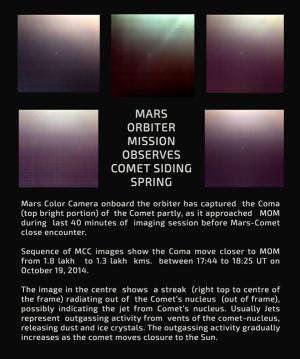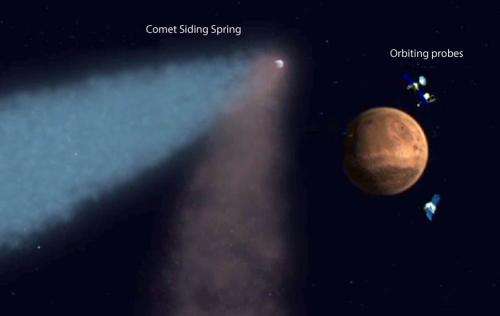'Meteoric smoke': Comet siding spring could alter Mars chemistry permanently

Feeling lucky? Events such as the Comet Siding Spring approach by Mars in October only happen about once every eight million years, according to NASA.
And after we were treated to spectacular views from the agency's spacecraft, we now have fresh pictures this month from an Indian mission. Also, NASA has released science results suggesting that the chemistry of Mars' atmosphere could be changed forever from the close encounter.
"The image in the center shows a streak … radiating out of the comet's nucleus (out of frame), possibly indicating the jet from [the] comet's nucleus," the Indian Science Research Organisation wrote of the above image sequence on its Facebook mission page.
"Usually jets represent outgassing activity from [the] vents of the comet-nucleus, releasing dust and ice crystals. The outgassing activity gradually increases as the comet moves closer to the Sun."
The comet's dust likely produced a meteor shower or meteor storm when particles from it crashed into the upper atmosphere, which "literally changed the chemistry," added Jim Green, director of NASA's planetary science division, in a recent discussion highlighted on an agency blog.

The agency says the dust created vaporized metals, which will eventually transform to dust or "meteoric smoke." MAVEN (which stands for Mars Atmosphere and Volatile EvolutioN) will be monitoring the long-term effects. Possible results include high-altitude clouds or at the most extreme, maybe permanently altering what the chemistry of the atmosphere is. Not a bad thing for a mission to study shortly after it arrived at Mars.
Source: Universe Today





















